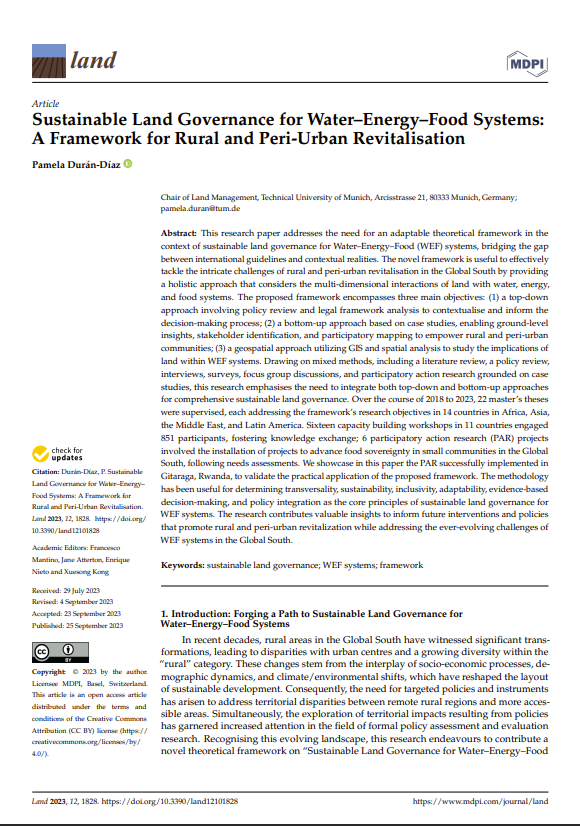Resource information
This research paper addresses the need for an adaptable theoretical framework in the context of sustainable land governance for Water–Energy–Food (WEF) systems, bridging the gap between international guidelines and contextual realities. The novel framework is useful to effectively tackle the intricate challenges of rural and peri-urban revitalisation in the Global South by providing a holistic approach that considers the multi-dimensional interactions of land with water, energy, and food systems. The proposed framework encompasses three main objectives: (1) a top-down approach involving policy review and legal framework analysis to contextualise and inform the decision-making process; (2) a bottom-up approach based on case studies, enabling ground-level insights, stakeholder identification, and participatory mapping to empower rural and peri-urban communities; (3) a geospatial approach utilizing GIS and spatial analysis to study the implications of land within WEF systems. Drawing on mixed methods, including a literature review, a policy review, interviews, surveys, focus group discussions, and participatory action research grounded on case studies, this research emphasises the need to integrate both top-down and bottom-up approaches for comprehensive sustainable land governance. Over the course of 2018 to 2023, 22 master’s theses were supervised, each addressing the framework’s research objectives in 14 countries in Africa, Asia, the Middle East, and Latin America. Sixteen capacity building workshops in 11 countries engaged 851 participants, fostering knowledge exchange; 6 participatory action research (PAR) projects involved the installation of projects to advance food sovereignty in small communities in the Global South, following needs assessments. We showcase in this paper the PAR successfully implemented in Gitaraga, Rwanda, to validate the practical application of the proposed framework. The methodology has been useful for determining transversality, sustainability, inclusivity, adaptability, evidence-based decision-making, and policy integration as the core principles of sustainable land governance for WEF systems. The research contributes valuable insights to inform future interventions and policies that promote rural and peri-urban revitalization while addressing the ever-evolving challenges of WEF systems in the Global South.

